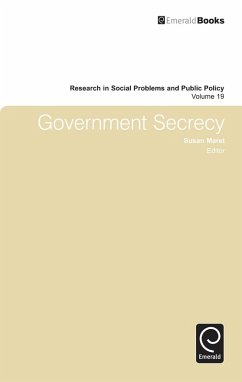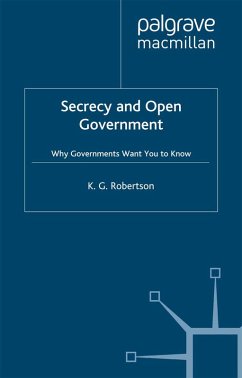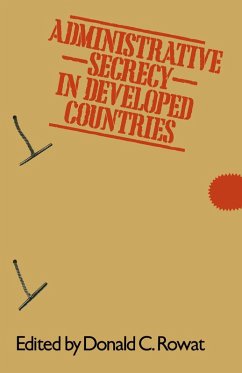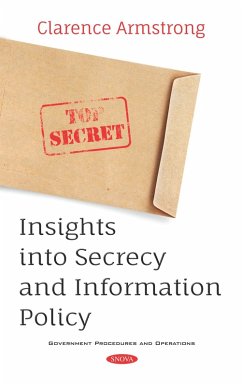Government secrecy (GS) is a significant social, political, and policy issue and often presents as a barrier to civic participation, public right-to-know, historical understanding, and institutional accountability. This volume examines GS in a variety of contexts, including comparative examination of government control of information, new definitions, categories, censorship, ethics, and secrecy's relationship with freedom of information and transparency. It investigates GS in terms of its current theoretical descriptions as power over and concealment of information (Bok 1983), a 'tampering of communications' (Friedrich 1972), the 'compulsory withholding of knowledge, reinforced by the prospects of sanctions for disclosure' (Shils), or Georg Simmel's (1906) idea of secrecy creating the 'possibility of a second world'. Following the introduction this book is divided into the following six sections: Government Secrecy: Theoretical Musings; Government Secrecy and the Media; Government Secrecy and Technology; Freedom of Information; Government Secrecy: Current Policy; and Ethics. Articles are sourced from around the world and include some from USA, Mexico, Africa, Israel and Britain.
Dieser Download kann aus rechtlichen Gründen nur mit Rechnungsadresse in A, B, BG, CY, CZ, D, DK, EW, E, FIN, F, GR, HR, H, IRL, I, LT, L, LR, M, NL, PL, P, R, S, SLO, SK ausgeliefert werden.









